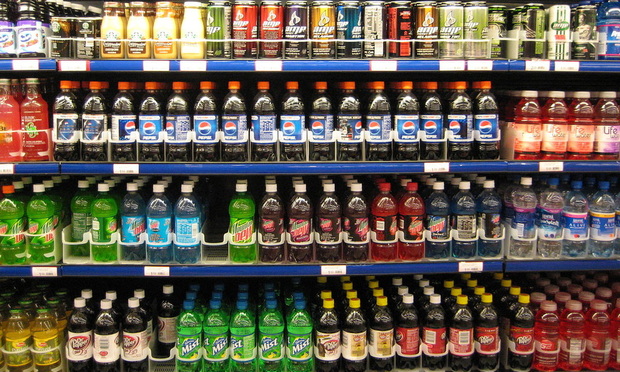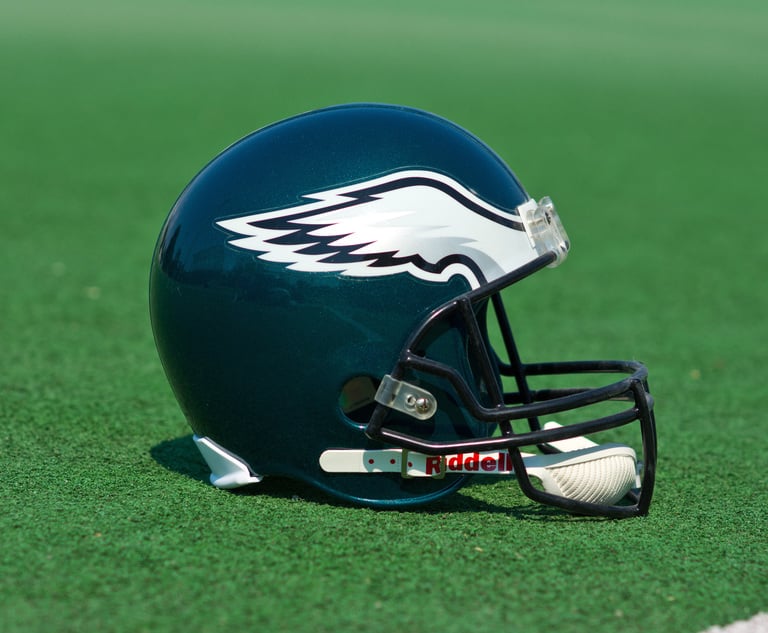Pa. Supreme Court to Consider Legality of Phila. Soda Tax
The Pennsylvania Supreme Court has agreed to hear argument on whether the nation's first sweetened-beverage tax stands up to legal scrutiny.
January 30, 2018 at 01:24 PM
3 minute read

The Pennsylvania Supreme Court has agreed to hear argument on whether the nation's first sweetened-beverage tax stands up to legal scrutiny.
Philadelphia Mayor Jim Kenney's most headline-grabbing legislative effort, colloquially known as the soda tax, will be examined by the state's justices to determine whether it violates Pennsylvania's Sterling Act, which prohibits Philadelphia from imposing a tax on a transaction or subject that the state already taxes, according to the court's order issued Tuesday.
The tax was upheld by the Commonwealth Court in June.
That court rejected the arguments of several retailers and beverage distributors, as well as the American Beverage Association, that the tax wasn't simply a levy on sweetened drinks, but instead a “power grab” by the city that could undermine businesses and overlapped with the already existing state sales tax.
Both sides' arguments in the case centered on the point at which drinks would be taxed—with distributors saying it's a sales tax and attorneys for the city government insisting it's paid directly by distributors, not at the cash register.
In upholding a Philadelphia judge's decision that the 1.5 cent-per-ounce tax was legal, Commonwealth Court Judge Michael H. Wojcik wrote in the en banc court's majority opinion that the beverage tax was not a sales tax and didn't violate the Sterling Act.
In a statement Tuesday, Philadelphia City Solicitor Sozi Pedro Tulante said the court's decision to take up the case was not surprising.
“Given the enormous public attention paid to this case—in Philadelphia, the commonwealth, and across the country—we are not surprised by the Supreme Court's decision to hear the appeal,” Tulante said.
“Our confidence in the city's authority to impose the tax has not wavered,” Tulante continued, “and we welcome the justices' thorough review of the Commonwealth Court's decision that confirmed the legality of the tax. Ultimately, we look forward to the day when the city can begin full implementation of the essential programs funded by the tax—expanded pre-K, Community Schools and Rebuild—to the benefit of tens of thousands of Philadelphia children and families.”
Shanin Specter of Kline & Specter represents the American Beverage Association.
“We are heartened by the Pennsylvania Supreme Court's decision to determine the legality of the Philadelphia beverage tax,” Specter said Tuesday. “While the city of Philadelphia has opposed Supreme Court review, it is evident that the tax poses significant legal issues. The court is right that review is warranted. All parties to this case—as well as local governments, businesses, and consumers across the commonwealth—will benefit from the court's assessment of state versus local authority in taxation.”
He added, “The city's statement is misleading as the mayor has agreed to keep pre-K even if the tax is overturned.”
This content has been archived. It is available through our partners, LexisNexis® and Bloomberg Law.
To view this content, please continue to their sites.
Not a Lexis Subscriber?
Subscribe Now
Not a Bloomberg Law Subscriber?
Subscribe Now
NOT FOR REPRINT
© 2025 ALM Global, LLC, All Rights Reserved. Request academic re-use from www.copyright.com. All other uses, submit a request to [email protected]. For more information visit Asset & Logo Licensing.
You Might Like
View All
Pa. Superior Court Rules Pizza Chain Liable for Franchisee Driver's Crash
4 minute read
Pa. Defense Firm Sued by Client Over Ex-Eagles Player's $43.5M Med Mal Win
3 minute read

Trending Stories
- 1DeepSeek Isn’t Yet Impacting Legal Tech Development. But That Could Soon Change.
- 2'Landmark' New York Commission Set to Study Overburdened, Under-Resourced Family Courts
- 3Wave of Commercial Real Estate Refinance Could Drown Property Owners
- 4Redeveloping Real Estate After Natural Disasters: Challenges, Strategies and Opportunities
- 5Calif. Fires Should Serve as a Reminder to Fla.’s Commercial Landlords and Tenants Not to Be Complacent
Who Got The Work
J. Brugh Lower of Gibbons has entered an appearance for industrial equipment supplier Devco Corporation in a pending trademark infringement lawsuit. The suit, accusing the defendant of selling knock-off Graco products, was filed Dec. 18 in New Jersey District Court by Rivkin Radler on behalf of Graco Inc. and Graco Minnesota. The case, assigned to U.S. District Judge Zahid N. Quraishi, is 3:24-cv-11294, Graco Inc. et al v. Devco Corporation.
Who Got The Work
Rebecca Maller-Stein and Kent A. Yalowitz of Arnold & Porter Kaye Scholer have entered their appearances for Hanaco Venture Capital and its executives, Lior Prosor and David Frankel, in a pending securities lawsuit. The action, filed on Dec. 24 in New York Southern District Court by Zell, Aron & Co. on behalf of Goldeneye Advisors, accuses the defendants of negligently and fraudulently managing the plaintiff's $1 million investment. The case, assigned to U.S. District Judge Vernon S. Broderick, is 1:24-cv-09918, Goldeneye Advisors, LLC v. Hanaco Venture Capital, Ltd. et al.
Who Got The Work
Attorneys from A&O Shearman has stepped in as defense counsel for Toronto-Dominion Bank and other defendants in a pending securities class action. The suit, filed Dec. 11 in New York Southern District Court by Bleichmar Fonti & Auld, accuses the defendants of concealing the bank's 'pervasive' deficiencies in regards to its compliance with the Bank Secrecy Act and the quality of its anti-money laundering controls. The case, assigned to U.S. District Judge Arun Subramanian, is 1:24-cv-09445, Gonzalez v. The Toronto-Dominion Bank et al.
Who Got The Work
Crown Castle International, a Pennsylvania company providing shared communications infrastructure, has turned to Luke D. Wolf of Gordon Rees Scully Mansukhani to fend off a pending breach-of-contract lawsuit. The court action, filed Nov. 25 in Michigan Eastern District Court by Hooper Hathaway PC on behalf of The Town Residences LLC, accuses Crown Castle of failing to transfer approximately $30,000 in utility payments from T-Mobile in breach of a roof-top lease and assignment agreement. The case, assigned to U.S. District Judge Susan K. Declercq, is 2:24-cv-13131, The Town Residences LLC v. T-Mobile US, Inc. et al.
Who Got The Work
Wilfred P. Coronato and Daniel M. Schwartz of McCarter & English have stepped in as defense counsel to Electrolux Home Products Inc. in a pending product liability lawsuit. The court action, filed Nov. 26 in New York Eastern District Court by Poulos Lopiccolo PC and Nagel Rice LLP on behalf of David Stern, alleges that the defendant's refrigerators’ drawers and shelving repeatedly break and fall apart within months after purchase. The case, assigned to U.S. District Judge Joan M. Azrack, is 2:24-cv-08204, Stern v. Electrolux Home Products, Inc.
Featured Firms
Law Offices of Gary Martin Hays & Associates, P.C.
(470) 294-1674
Law Offices of Mark E. Salomone
(857) 444-6468
Smith & Hassler
(713) 739-1250





